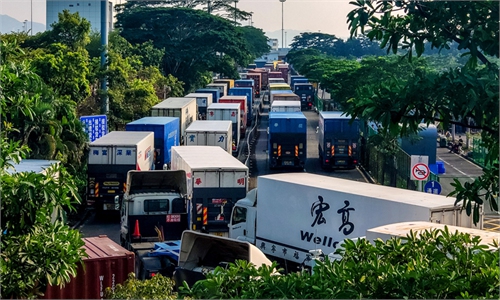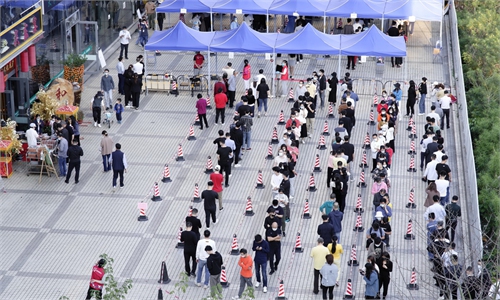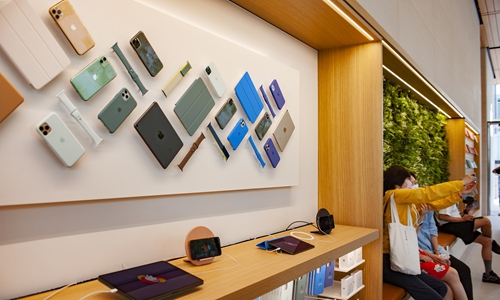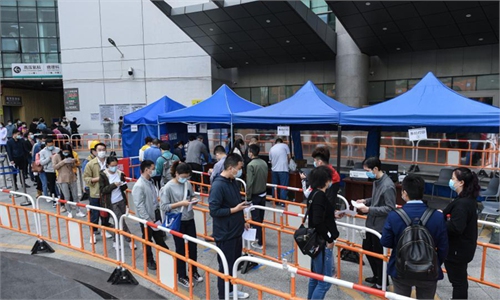Chinese tech hub Shenzhen to report more positive COVID-19 cases as city-wide mass testing rolls out
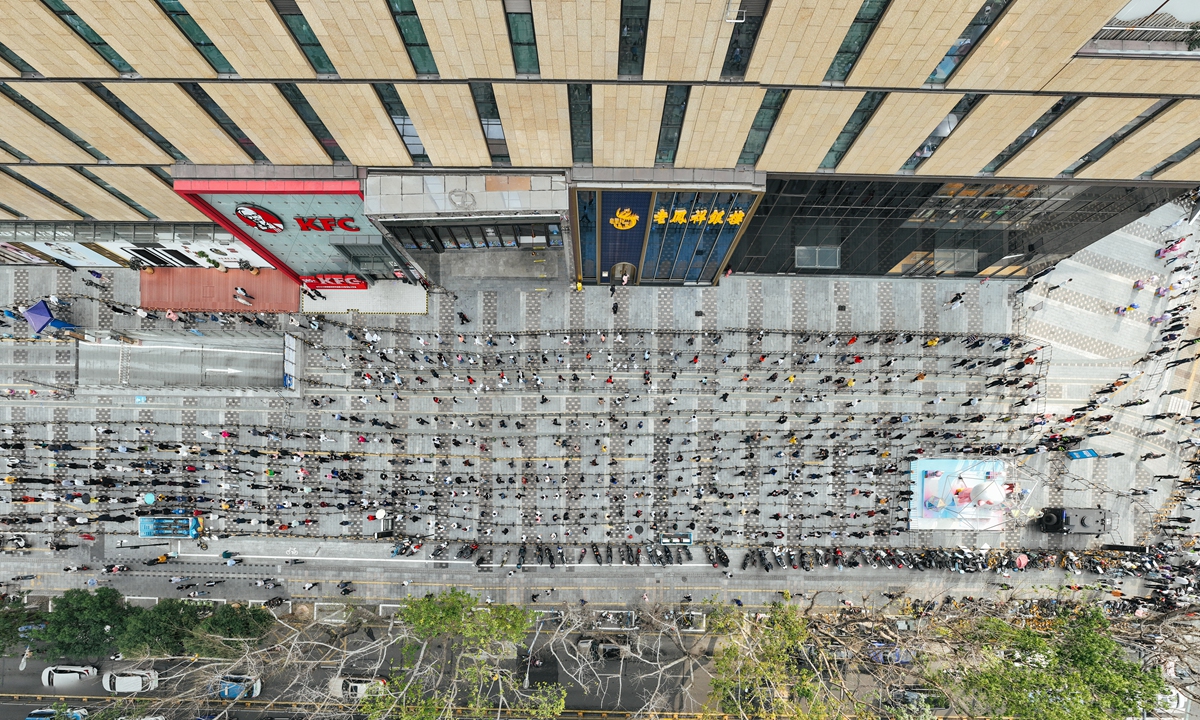
Residents of Shenzhen, South China's Guangdong Province line up to take nucleic acid tests on March 6, 2022. Photo: VCG
Chinese tech hub Shenzhen, a coastal city bordering Hong Kong with 17 million residents, pressed the pause button on Monday, the first day authorities instituted a stay-at-home order to facilitate mass testing. The authorities also warned more positive cases among communities are likely to be detected in the coming days.
Apart from residents queuing up for their first round of city-wide nucleic acid testing, there were no rushing passengers on subways and no traffic jam on its bustling streets, nor long lines in front of restaurants. Following the stay-at-home order, residents in the city are working remotely and will take two more rounds of testing later this week.
In the past 24 hours, the city registered 86 positive infections, with 75 confirmed cases and 11 silent carriers. About half of the positive cases were detected among close contacts of confirmed cases and half were among communities.
The epidemic situation should remind us that community transmission risk is still high and as the city-wide mass testing carries out more positive cases are likely to be reported, Huang Qiang, the deputy secretary of the Shenzhen government, said at Monday's press conference.
Shenzhen still faces great risks in either imported personnel or imported goods, Huang said. Recently, the positive cases in the city have been turbulent, more cases were detected among key regions, populations and communities and small cluster outbreaks were also detected in villages within the city and factories.
Some residents reached by the Global Times said after the Shenzhen government released the notice of partially locking down the city late on Sunday, they swarmed to shopping malls and grocery stores. But when they go out on Monday morning, shelves of local grocery stores were filled with food.
"Now the communities have sealed off, but still allow one person from a household to purchase food every day. We can also order takeouts but it would take hours or a day for the delivery to send," a resident in Shenzhen's Futian district told the Global Times.
The city government arranged more than 20 grocery stores which cover more than 14,000 venues to provide daily supply for residents during the stay-at-home period. The supply now is sufficient and the reserve is 3-5 times of the usual storage.
During the partially lockdown period, traffic out of the city has also been restricted, as a negative result of nucleic acid test result taking within 24 hours must be presented before they can leave the city.
Starting from Monday, the airport in Shenzhen will also be requiring people to present a negative nucleic acid test result certificate taken within 24 hours before entering the terminal. Other public transportation including inner city buses and subways, and at least three public bus stations in the city suspended their operations to cooperate with the city government's order of mass testing.
Apart from those companies providing basic services for the city, other enterprises, public venues such as cinemas were suspended their businesses and ordered their employees to work from home. Manufactures including Foxconn also suspended operations. Restaurants can only provide take-out service.
Apart from enhancing epidemic control, Shenzhen is also guaranteeing the availability of medical service to other patients. Hospitals are recommended to adjust their working schedules to ensure emergency surgery, rescue of critical and severe patients not affected. The hospitals have also been asked to provide preferential treatment for patients with chronic diseases.
Residents reacted calmly to the recent flare-up as they feel it's not a big deal as Omicron doesn't cause serious health problems and they are confident that the government will do its job to protect the general public.
Lu Hongzhou, head of the Third People's Hospital of Shenzhen and member of the expert committee of Shenzhen epidemic prevention and control center, told the Global Times on Monday the essence of the new measures is to slow to pace of the city, which will help the Shenzhen government to better conduct mass testing on its residents which is part of the country's dynamic zero case, effective to screen out all potential Omicron infections.
Lu said the tricky part for this round of outbreak is that it is characterized with highly-contagious and strong-infective Omicron, which has now spread into communities across Shenzhen with multiple transmission chains. But as long as all potential infections can be traced and quarantined, positive infections will be cleared soon.
As precautionary measures to guard against future Omicron entering the city, Lu suggested further strengthening the regular health monitoring of imported-related personnel and infection status of goods.

